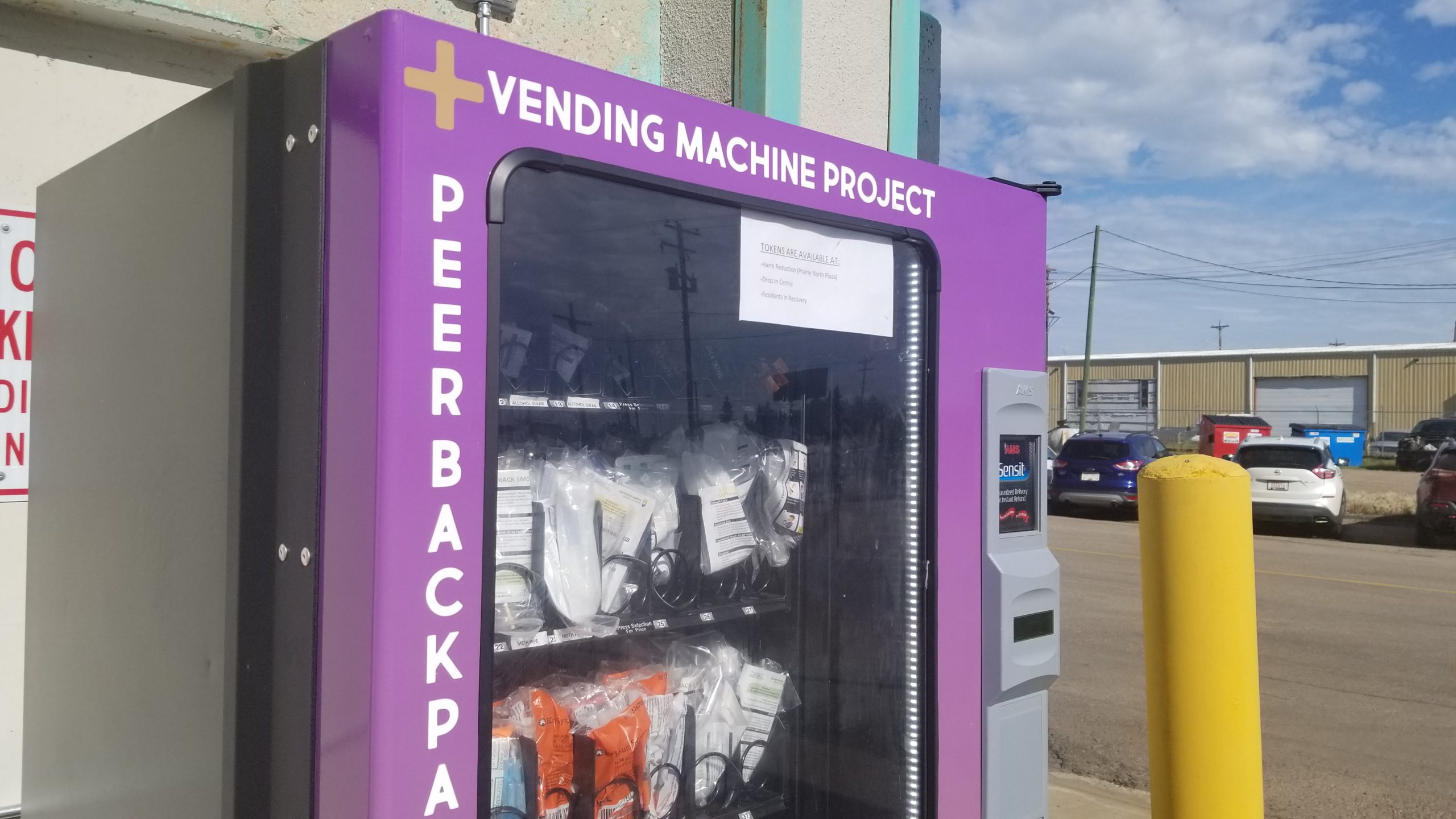A harm reduction program aimed at reducing HIV rates has made its way to the Border City.
A vending machine stocked with sterile drug-use equipment allowing drug users access to clean equipment was installed by the Prairie North Plaza. The machine is temporarily located in the loading bay and was placed there in March.
Danielle Radchenko, a sexual health coordinator for the Saskatchewan Health Authority, launched the program after receiving a grant from the Public Health Agency of Canada. The program started in North Battleford last year at the same time an HIV and syphilis outbreak was declared in both the North Battleford and Lloydminster areas.
“We wanted to increase access to harm reduction services in the Lloydminster, North Battleford, Meadow Lake and rural areas. We started out with a peer backpack program where clients would hand out supplies from a backpack and go around.”
A machine was also installed in Meadow Lake. In order for people to get access to the supplies, they must get a token from the harm reduction clinic inside the Prairie North Plaza, the drop-in centre, Residents in Recovery or a backpacker.
A total of six backpackers are a part of the program with two in Lloydminster. Radchenko says the pandemic has interrupted their in-person meetings and health and safety guidelines were made to ensure their safety as well as their clients safety.
“The vending machines have allowed for people to still have access without having a congestion of people in the health centre when we try to still provide care and still have that good access to the care that people need without putting people at risk of exposure to COVID.”
The long-term goal for the project is to decrease HIV and Hepatitis C rates in the areas. Radchenko and her team has been tracking the rates through surveys asking questions such as whether they have been reusing or sharing equipment.
“For North Battleford, we had a 26 per cent decrease in the first six months. We’re hoping to have a 30 per cent drop over the two years. We’re very close to our goal and we hope to make it there by the next survey we do.”
She feels the program has been successful in the year it has been active. She says the connection and relationship building with the backpackers has been one of the highlights so far.
“We have met many people through this program that have asked us how to get treatment or detox. We’ve had people reach out to get counselling and we had new people that we never knew needed support come to us, I think feeling supported by the new initiative.”
Radchenko is gathering additional information on the program and will compile the findings into a report for the Public Health Agency. The deadline for the report is March 2021.
Radchenko isn’t sure if the program will continue after the report is completed or if the machines will stay in the communities permanently.
“We are looking at ways to make the program sustainable long-term. At this time, I hope that will happen, but I don’t have a clear answer. Everything is a bit up in the air with COVID on where funding will lie.”
She says it is a trial project and whatever findings come from the program will be shared with other public health agencies to help refine their own harm reduction strategies.


